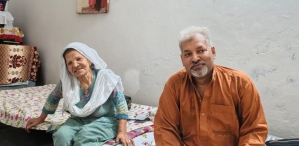
A pastor acquitted of a false blasphemy charge after 13 years of languishing in prison tragically died two days after his release, a rights group said.
Pastor Zafar Bhatti, 62-year-old founder of the Jesus World Mission Church ministry, died of cardiac arrest on Sunday (Oct. 5) at his home in Rawalpindi, Punjab Province, rights group British Asian Christian Association (BACA) announced. BACA had arranged legal representation for the pastor and also supported his 76-year-old ailing wife, Nawab Bibi. He had no children.
Bhatti was released from the Adiala District Jail on Wednesday after the Rawalpindi Bench of the Lahore High Court overturned his blasphemy conviction by a sessions court on Oct. 2. He was arrested in July 2012 after an Islamist cleric accused him of sending text messages disrespectful of Islam’s prophet, Muhammad.
He was charged under Section 295-C of Pakistan’s harsh blasphemy laws, which prescribe a mandatory death sentence for insulting Muhammad. A trial court on May 3, 2017, sentenced him to life imprisonment, but in 2022 his sentence was escalated to the death penalty.
“Though his earthly journey has ended, Zafar’s faith, endurance, and ultimate vindication remain a powerful testament to hope in Christ amidst persecution,” BACA said in a statement, adding that it had arranged for his burial in Pakistan’s southern port city of Karachi, fulfilling his last wish.
The organization stated that Bhatti’s heart condition had been a serious concern for several years, with underlying issues such as diabetes taking a heavy toll.
“In 2019, medical assessments indicated he was at significant risk of another heart attack, having already experienced two minor episodes,” BACA stated. “He reportedly suffered another attack in 2020. In 2022, Zafar experienced severe complications, including vomiting blood after receiving medication from the prison medical team, prompting our legal team to appeal for his release on medical grounds.”
By early 2025, prison medical staff reportedly noted that his heart function had deteriorated dramatically – to about 15 percent – with very limited treatment options available, the group stated.
Blasphemy remains a capital offense in Pakistan, punishable by death. Although the state has not executed anyone under the law, mere accusations have triggered mob violence resulting in dozens of deaths over the past decade. The accused often endure long pretrial detentions, unfair trials and constant threat of extrajudicial killing.
A total of 17 Christians, including six women, were accused under blasphemy laws in 2024, all from Punjab, according to a 2024 report by the National Commission for Justice and Peace (NCJP). The same report recorded 23 Muslim victims.
The Human Rights Commission of Pakistan (HRCP), in its 2024-2025 report, noted that those accused of blasphemy face particular danger and are often kept in isolation to protect them from attacks by other inmates.
Human Rights Watch stated in a June 9 report that Pakistan’s blasphemy laws were being systematically misused to target religious minorities, dispossess the poor and settle personal and economic disputes.
“Blasphemy accusations are increasingly weaponized to incite mob violence, displace vulnerable communities and seize their property with impunity,” states the 29-page report, “A Conspiracy to Grab the Land: Exploiting Pakistan’s Blasphemy Laws for Blackmail and Profit.”
In several cases, blasphemy accusations were used to target business rivals or coerce property transfers, according to the report. It added that the law’s broad and vague provisions allow it to be exploited with minimal or no evidence, creating a climate of fear among vulnerable groups.
HRW criticized Pakistan’s criminal justice system for enabling these abuses. Authorities rarely hold perpetrators of mob violence accountable, while police often fail to protect the accused or investigate allegations, it stated. In some instances, officers who intervene face threats themselves. Political and religious actors accused of inciting violence frequently escape arrest or are acquitted due to lack of political will or intimidation.
“Failure to prosecute those responsible for incitement and attacks in the past has emboldened those who use these laws to extort and blackmail in the name of religion,” said Patricia Gossman, HRW’s associate Asia director.
The Pakistani government should urgently reform its blasphemy laws to prevent them from being weaponized, she emphasized.
Pakistan ranked eighth on Open Doors’ 2025 World Watch List of the most difficult places to be a Christian.






